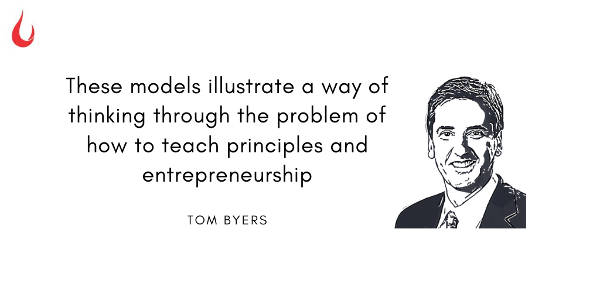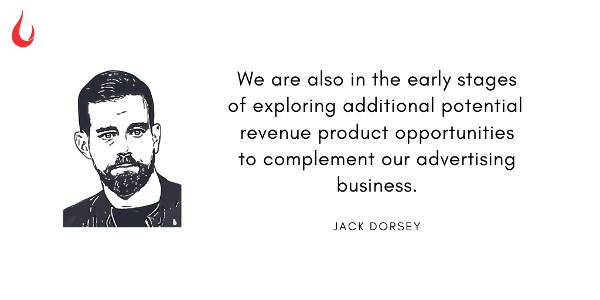[Photo by Markus Spiske on Unsplash]
Good morning,
In November 1990, John Gardner was invited to speak at McKinsey & Co on personal renewal. While there, he offered listeners sagacious advice worth revisiting over the weekend. It offers pointers on how to examine ourselves and prepare for what lies ahead.
“Not long ago, I read a splendid article on barnacles…
“The barnacle is confronted with an existential decision about where it's going to live. Once it decides… it spends the rest of its life with its head cemented to a rock…
“For a good many of us, it comes to that. We've all seen men and women, even ones in fortunate circumstances with responsible positions who seem to run out of steam in midcareer.
“One must be compassionate in assessing the reasons. Perhaps life just presented them with tougher problems than they could solve. It happens. Perhaps something inflicted a major wound on their confidence or their self-esteem. … You've known such people—feeling secretly defeated, maybe somewhat sour and cynical, or perhaps just vaguely dispirited. Or maybe they just ran so hard for so long that somewhere along the line they forgot what it was they were running for…
“The more I see of human lives, the more I believe the business of growing up is much longer drawn out than we pretend. If we achieve it in our 30s, even our 40s, we're doing well. To those of you who are parents of teenagers, I can only say ‘Sorry about that.’
“There's a myth that learning is for young people. But as the proverb says, “It's what you learn after you know it all that counts.” The middle years are great, great learning years. Even the years past the middle years. I took on a new job after my 77th birthday—and I'm still learning.
“Learn all your life. Learn from your failures. Learn from your successes, When you hit a spell of trouble, ask ‘What is it trying to teach me?’ The lessons aren't always happy ones, but they keep coming. It isn't a bad idea to pause occasionally for an inward look. By midlife, most of us are accomplished fugitives from ourselves.”
“If we are conscious of the danger of going to seed, we can resort to countervailing measures. At almost any age. You don't need to run down like an unwound clock. And if your clock is unwound, you can wind it up again. You can stay alive in every sense of the word.”
In this issue
- Ethics and entrepreneurship
- The constants of technology
- Stayin’ alive
- Listen to the masters
Have a peaceful weekend!
Ethics and entrepreneurship
Stanford University and Silicon Valley are spoken about in the same breath. Both ecosystems live off each other—or at least that is what popular narrative suggests. But then, the popular narrative also has it that Silicon Valley is the kind of place that venture capital and private equity funds imagine as hallowed ground to place their bets on. And over decades, oftentimes, their bets have paid off handsome dividends. But then, there are bets that smack of hubris as well.
This year though, as all bets go off the table, because all else seems foggy, a two-year-old essay by Thomas Byers is worth revisiting.

“For startup founders looking to deliver on proposals made to financial backers, it can be easy to consider very little besides developing the product, without articulating a core set of principles and the company’s relationship to its clients and community.
Byers goes on to talk about a model that venture capitalist Chi-Hua Chien uses to evaluate the “five critical risks of entrepreneurship”: market, team, technology, product and business model. It is time this model be updated to include a sixth risk: Values.
“As someone who leads a fund that invests in early-stage companies, he [Chi-Hua Chien] believes that venture capitalists benefit when they consider founders’ guiding principles. Sussing out principles can give investors a better sense of how founders will act in difficult, murky situations.
“These aren’t one-size-fits-all recommendations, but I share them because I believe these models illustrate a way of thinking through the problem of how to teach principles and entrepreneurship. It seems to me that creating new teaching materials will mean teasing apart a few entwined threads:
- First, we must consider what it means to have values and teach them in a secular, nonpartisan way.
- Second, we must look at what methods best teach students about themselves in particular and entrepreneurial projects in general.
- Third, we must consider the unique aspects of the entrepreneur’s environment, from a variety of investment structures, methods for experimentation and growth, and the cultural norms within different geographies.”
The constants of technology

Early last week, Twitter faced an outage for a few hours. It was soon evident, the platform was hijacked and it was a matter of time before The New York Times got the hackers to tell the inside story of how they did it. And yesterday, Jack Dorsey, the charismatic founder of Twitter, spoke of a subscription-platform after a dramatic drop in ad revenues. This reinforces two constants about technology.
- No technology is secure
- Staying constant is not an option for technologists
Stayin’ alive
One way to stay alive is to spend time Talkin’ ‘Bout My Generation. Like Damodar and Harsh Mall plan to later this evening. Those who’ve tuned in to Episode 1, loved it.
It’s one thing to listen to the master…
… another thing to remember, their context matters.

(Via WhatsApp)
What do you do with old toys? Tell us why on email, or share it on Twitter, tagging @foundingf. Or head to our Slack channel.
And if you missed previous editions of this newsletter, they’re all archived here.
Bookmark Founding Fuel’s special section on Thriving in Volatile Times. All our stories on how individuals and businesses are responding to the pandemic until now are posted there.
Warm regards,
Team Founding Fuel


